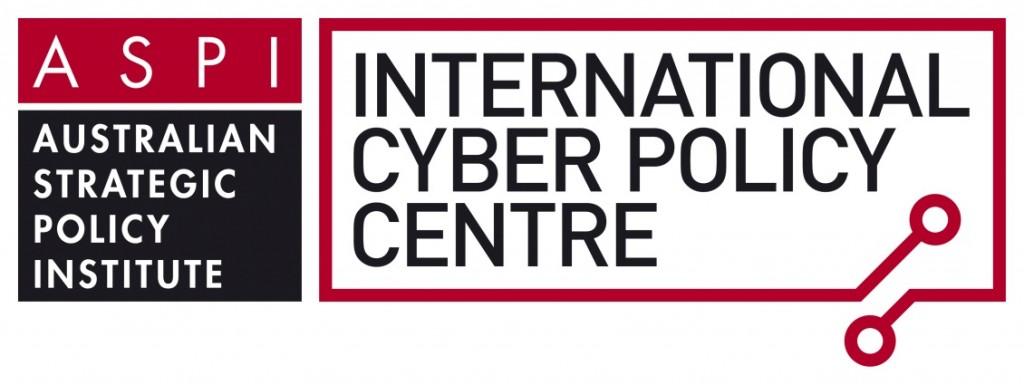Cyber wrap
Posted By Simon Hansen on March 25, 2014 @ 12:30
 [1]This week on the cyber wrap, it’s good guys versus bad guys as we ask the question: ‘Who are the enemies of the Internet?’
[1]This week on the cyber wrap, it’s good guys versus bad guys as we ask the question: ‘Who are the enemies of the Internet?’
A recent report [2] (PDF) by Reporters without Borders found that dubious honour belongs to the Centre for Development of Telematics in India, the Government Communications Headquarters (GCHQ) in the United Kingdom and the National Security Agency (NSA) in the United States. It’s not the first time [3] these government agencies have come under fire for their mass surveillance methods. The report scrutinised the ‘schizophrenic’ nature of democratic governments that press for online freedoms while simultaneously adopting the very practices for which they’re criticising authoritarian regimes. The report also highlighted the problem of governments, both democratic and non-democratic, that were ‘riding roughshod over fundamental freedoms’ under the pretext of national security. China also featured in the report for its role in assisting the governments of Iran and Zambia to establish national Internets that are disconnected from the World Wide Web and under the complete control of the government.
Pew Research Center has also published a report [4] on internet freedom this week. Their survey shows widespread opposition to internet censorship in emerging and developing nations. Perhaps unsurprisingly, support for internet freedom is especially strong in countries where a large percentage of the population is online. And, in most of the countries polled, people aged 18–29 were more likely to consider internet freedom a priority than those aged 50 or older. Former US President Bill Clinton has weighed in on the internet freedom debate saying [5] that if the US gives up oversight of ICANN—the non-profit organisation responsible for managing Web domains and IP standards—this will enable foreign governments to crack down on netizens. For an analysis of the ICANN debate, see Klée Aiken and David Lang’s recent post [6] on The Strategist.
Other bad guys of the Internet this week include tech titans Microsoft, Apple and Yahoo. Alex Hern at The Guardian looked into [7] the terms of service and privacy policies of these webmail giants and found they reserve the right to read users’ email if they believe that such access is necessary to protect their property. This story came only a few days after NSA general counsel Rajesh De told the Civil Liberties Oversight Board that tech companies ‘knew what was going on’ [8] with NSA’s spying activities, incurring further reputational costs for the big techs. Google, Facebook, Apple and Microsoft have all denied participating in PRISM, with Google CEO Larry Page stating [9] ‘it’s tremendously disappointing that our government did this and didn’t tell us’.
A further blow to the US’ ‘freedom of information’ narrative has been the revelation [10] that the NSA had created its own backdoors into the Chinese telecommunications company Huawei. One objective of operation ‘Shotgiant’ was to link Huawei with the People’s Liberation Army in order to show that Huawei’s widespread infrastructure would provide China with SIGINT capabilities. Another more disquieting objective was to compromise Huawei, as ‘many of [the US’] targets communicate over Huawei produced products, we want to make sure that we know how to exploit these products’. Thomas Rid over at Kings of War has some interesting take home points [11] on the saga, not least that Snowden is a gift that keeps on giving to China’s leaders. The NSA backdoor into Huawei raises questions on the difference between political and economic cyber attacks. The norm that there is a difference may be dead—or at least blurred beyond distinction. A discussion of international norms on cyber attacks is happening here [12].
Locally, the Australian Securities and Investments Commission (ASIC) has announced [13] that cybercrime is a systemic and black swan [14] risk, in other words, a major event could happen at any time. Chairman Greg Medcraft opened the annual ASIC forum [15] that will host a panel discussion on how regulators can tackle cybercrime. One suggestion by the Commonwealth Director of Public Prosecutions, Robert Bromwich, and the Commissioner of the Australian Competition and Consumer Commission, Sarah Court, was that tough penalties, including the real risk of jail, has a powerful deterrent effect. That may be the case for domestic criminals [16], but for offenders in Râmnicu Vâlcea, Romania, aka ‘Hackerville’ [17], the risk is negligible.
Finally, for a look at a look at cyber war with your own eyes, Kaspersky has revealed [18] an interactive map of online threats. The map is in real time with the option to check how infected each country is compared to others. Australia is currently the 23rd most infected country.
Simon Hansen is an intern at ASPI.
Article printed from The Strategist: https://aspistrategist.ru
URL to article: /cyber-wrap-21/
URLs in this post:
[1] Image: https://aspistrategist.ru/wp-content/uploads/2014/03/cyber-logo-1024x385.jpg
[2] recent report: http://12mars.rsf.org/wp-content/uploads/EN_RAPPORT_INTERNET_BD.pdf
[3] It’s not the first time: http://www.theguardian.com/world/2014/feb/27/gchq-nsa-webcam-images-internet-yahoo
[4] report: http://www.pewglobal.org/2014/03/19/emerging-and-developing-nations-want-freedom-on-the-internet/
[5] saying: http://venturebeat.com/2014/03/23/bill-clinton-if-the-u-s-gives-up-internet-oversight-internet-freedom-will-suffer/
[6] post: https://aspistrategist.ru/governing-the-net-america-stirs-the-debate/
[7] looked into: http://www.theguardian.com/technology/2014/mar/21/yahoo-google-and-apple-claim-right-to-read-user-emails
[8] knew what was going on’: http://www.cnet.com/news/nsa-top-lawyer-says-tech-giants-knew-about-data-collection/
[9] stating: http://www.bloomberg.com/news/2014-03-19/google-ceo-calls-nsa-spying-disappointing-.html
[10] revelation: http://www.nytimes.com/2014/03/23/world/asia/nsa-breached-chinese-servers-seen-as-spy-peril.html
[11] take home points: http://kingsofwar.org.uk/2014/03/snowden-thanks-very-much/
[12] here: http://www.lawfareblog.com/2014/03/snowden-disclosures-and-norms-of-cyber-attacks/
[13] announced: http://www.smh.com.au/business/the-economy/cybercrime-a-black-swan-risk-says-asic-20140324-35clc.html
[14] black swan: http://en.wikipedia.org/wiki/Black_swan_theory
[15] annual ASIC forum: http://www.asic.gov.au/annual-forum
[16] domestic criminals: http://www.smh.com.au/it-pro/security-it/australian-charged-with-hacking-us-gaming-network-20140320-hvkoc.html
[17] ‘Hackerville’: http://www.wired.com/magazine/2011/01/ff_hackerville_romania/
[18] revealed: https://blog.kaspersky.com/look-at-cyberwar-with-your-own-eyes-an-interactive-map-of-online-threats/
Click here to print.